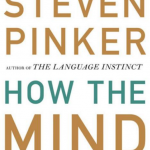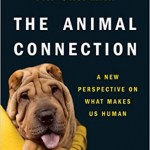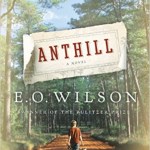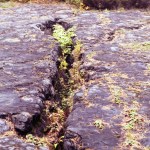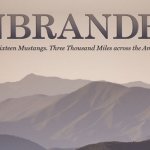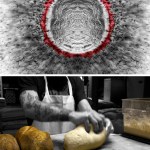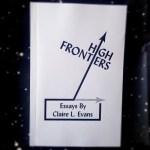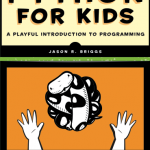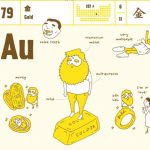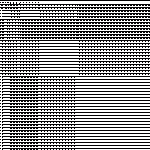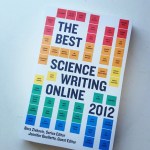Book
This is not my favorite book, because I think the subtitle should be "No, it doesn't Steve" ... but How the Mind Works is not without merit, and Steve Pinker is a great writer. Anyway, I thought you's like to know that it is now available on Kindle for two bucks.
You know of Pat Shipman at the very least because of her recent and, dare I say, highly controversial and excellent book The Invaders: How Humans and Their Dogs Drove Neanderthals to Extinction. If you've not read it, do so. But, in the mean time, another book she wrote in the same area, The Animal Connection: A New Perspective on What Makes Us Human, is now available on Kindle for two bucks.
Why do humans all over the world take in and nurture other animals? This behavior might seem maladaptive—after all, every mouthful given to another species is one that you cannot eat—but in this…
Anthill: A Novel
Winner of the 2010 Heartland Prize, Anthill follows the thrilling adventures of a modern-day Huck Finn, enthralled with the "strange, beautiful, and elegant" world of his native Nokobee County. But as developers begin to threaten the endangered marshlands around which he lives, the book’s hero decides to take decisive action. Edward O. Wilson—the world’s greatest living biologist—elegantly balances glimpses of science with the gripping saga of a boy determined to save the world from its most savage ecological predator: man himself.
I bring this up now because the Kindle…
I remember watching, decades ago, a short film with Picasso. There was a glass wall that you could not see, and Picasso was standing behind it, dressed like a French Artist and holding painting equipment. He then proceeded to draw lines on the glass. Each line had a particular orientation and shape. He put just a couple of lines on the glass, and in so doing, created a great work of art. If I recall correctly, he made a few of them. Years later, visiting Picasso's home in Paris, I saw a bicycle handlebar thad had been broken and welded roughly back together again. Two pieces of metal, each…
The Madhouse Effect: How Climate Change Denial Is Threatening Our Planet, Destroying Our Politics, and Driving Us Crazy, by climate scientist Michael Mann and cartoonist Tom Toles is now available for pre-order. I've not gotten my review copy of it yet, but it looks fantastic.
From the publisher:
The award winning climate scientist Michael E. Mann and the Pulitzer Prize-winning political cartoonist Tom Toles have fought at the frontlines of climate denialism for most of their careers. They have witnessed the manipulation of the media by business and political interests and the…
This is a review of The Story of Life in 25 Fossils: Tales of Intrepid Fossil Hunters and the Wonders of Evolution.
Don Prothero
Fossils are cool. Why? Two very big and complex reasons. First, fossils allow us to reconstruct species that don’t exist any more. This is usually done by studying species that do exist, and using the information we glean from living things to interpret the details of the fossil species, giving it life. Second, fossils tell us about evolutionary change, both by showing us what evolutionary events happened that we would not be able to see in living species, and…
Unbranded is the story of four guys and a small herd of mustangs who traveled three thousand miles across the American west. From author Ben Masters web site:
Ben Masters is the “mastermind” of Unbranded. In 2010, he and two friends completed a 2,000-mile ride along the Continental Divide. They were broke at the time and adopted some $125 mustangs from the Bureau of Land Management to supplement their string of quarter horses. They were surprised to find the mustangs outperformed the domestic horses. Intrigued, Masters looked into the wild horse controversy and found a sad and complex…
A new book will make you stop and think about the relationship between the microscopic world and the one we pass by every day.
Life’s Blueprint – The Science and Art of Embryo Creation; Benny Shilo, Yale University Press, 174 pages.
Stem cells and their niche
When a stem cell divides, one daughter maintains the stem cell fate while the other produces a differentiated progeny. Stem cells are positioned in a restricted spatial niche that provides signals maintaining them in a proliferative, nondifferentiated state. After division, only the undifferentiated progeny is retained in the niche.…
"I like to compare the holiday season with the way a child listens to a favorite story. The pleasure is in the familiar way the story begins, the anticipation of familiar turns it takes, the familiar moments of suspense, and the familiar climax and ending." -Fred Rogers
I know it's still the middle of November, but I know that many of you are already thinking about holiday gifts for the lovers of physics, astronomy and the Universe in your life. People send me books and other educational materials throughout the year for review, and although they all have good and bad points about them, I'm…
Writing for the Internet is like yelling into the void: freeing, probably more than a little cathartic, but ultimately lonely. That's not to say that I haven't made profound connections out here, but like most writers I long for a little thing with my name on it that fits in the hand, that can be passed around and earmarked, tossed away and re-discovered.
Which is why I'm so pleased to announce the existence of precisely such a little thing: my brand-new collection of essays and arcana, High Frontiers, fresh from the presses of Publication Studio:
High Frontiers brings together…
"The vastness of the heavens stretches my imagination. It does not do harm to the mystery to know a little about it. For far more marvelous is the truth than any artists of the past imagined it." -Richard Feynman
What did you think about, wonder about, and dream about the first time you saw the true magnificence of the night sky? Did you wonder about planets orbiting each of the thousands of points of light you saw? Did you think about the possibilities of rocky worlds with liquid water, of life, and even of intelligent aliens? Or did you perhaps think on even larger scales, about what stars…
"A truly good book teaches me better than to read it. I must soon lay it down, and commence living on its hint. What I began by reading, I must finish by acting." -Henry David Thoreau
Every day that we have free or leisure time, there's this great conflict as to how we spend it: working to better ourselves and improve our knowledge, and taking the time to enjoy our lives in whatever way we see fit. Sometimes, this goes horribly awry, as the B-52s would attest in their (relatively) new song,
Funplex.
But there's often no better way to combine these two pursuits than by reading a good book.…
My first computer language was PL/1, but soon after I learned, among other languages, Basic, and I really liked Basic and I still do. Basic is linear, and I think in linear constructs when I do any kind of computer program. This is probably, in part, because user interfaces are the last thing I want to deal with. I want a series of numbers to be treated in a certain way, or a set of formulas to generate a database. The most non-linear I tend to get is multidimensional arrays, and that's still linear.
Python is potentially, and in practice, very different, and is essentially used as an…
Born in Africa: The Quest for the Origins of Human Life by Martin Meredith examines the history of human evolution studies, focusing on Africa, and provides a comprehensive overview of the conflict between different researchers, different points of view, and sometimes, different evidence. It is a good read.
Meredith starts out with an examination of the Taung fossil, its discoverer, anatomy, and associated controversy. As you probably know, Taung was brought light by anatomist Raymond Dart, and had its initial impact on human evolutionary studies in the 1920s when the British Piltdown…
Have ever really thought about the elements? Have you ever really asked questions about them? If you are some kind of scientist or science geek, you probably know a lot about them, and that could even be a disadvantage for you, in a sense. For instance, if you learned early on that elements were formed at certain points in time and in certain places (the big bang or later in stars, for most atoms) then the following question may not have occurred to you: "What happens when a bunch of Carbon atoms get old. Do they fall apart?" Also, a sense of purity may be something you understand but…
When I was a kid, I loved the almanac. I don't remember where they came from, but every couple of years a new one would appear in the house, and as soon as I got my hands on it, it moved into my room and anybody who wanted to look stuff up in it after that needed to see me first. And, actually, much of the time I could give them whatever info they needed if they just asked me, because I knew the contents.
I have on my desk the "The World Almanac for Kids 2013" produced by World Almanac. It has a picvture of a ballerina, a frog, a football player with the New York Jets, somebody who looks…
I've been practicing little idiosyncratic rituals on this corner of the web for years: learn something new, obsessively research, get lost in the idea, scribble, converse endlessly, then write. This blog, Universe, has never been about garnering hits or materializing an audience because, for me, thinking and writing about science is a personal tic. I can't help but yell into the void; I understand science as a poetic language for explaining reality, and when I see changes in that language all I want to do is unfasten myself into them.
I definitely don't seek any form of recognition for what…
Just to keep you all updated, we learned yesterday that the children's social worker has decided to separate the children, and place them in three homes. Two will stay with the current foster mother, one with one home, and they are seeking a home for one child and the newborn. Since we will take larger groups than two and there are very few homes that take three or four, we are not candidates to take any of the kids.
I admit, I'm relieved not to have to make a decision about taking these kids - it isn't the numbers, so much as the ages - I realized about myself that while I would happily…
I just received a box of "Science is Culture" galleys from HarperCollins -- it's pretty exciting... Here's a sneak peek.
After hosting blogs for four years, it's about time I started my own. So, welcome!
Let me begin with a bit about me and what I believe.
I believe that science has the unique potential to improve the state of the world. I think this potential is being hindered today by a lack of science literacy around the world and by the largely closed and restricted nature of the world's scientific information. Two connected topics (ie. Science Literacy and Open Science) that I care passionately about and will delve deep into on this blog. I also believe that science can be more than a subject; it can be a…
